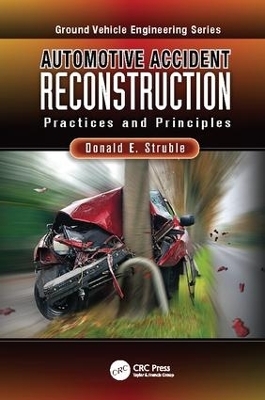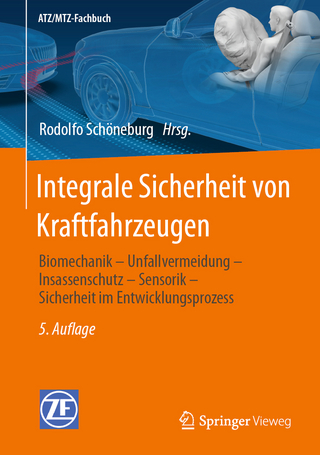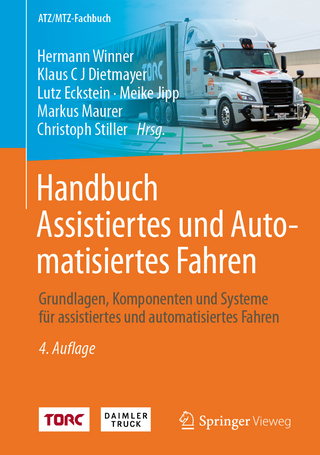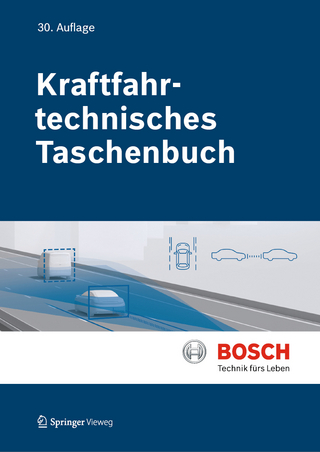
Automotive Accident Reconstruction
CRC Press (Verlag)
978-1-138-07672-3 (ISBN)
It discusses the specific requirements of reconstructing rollover crashes, offers background in structural mechanics, and describes how structural mechanics and impact mechanics are applied to automobiles that crash. The text explores the treatment of crush energy when vehicles collide with each other and with fixed objects. It delves into various classes of crashes, and simulation models. The framework of the book starts backward in time, beginning with the analysis of post-crash vehicle motions that occurred without driver control.
Applies time-reverse methods, in a detailed and rigorous way, to vehicle run-out trajectories, utilizing the available physical evidence
Walks the reader through a collection of digital crash test data from public sources, with detailed instructions on how to process and filter the information
Shows the reader how to build spread sheets detailing calculations involving crush energy and vehicle post-crash trajectory characteristics
Contains a comprehensive treatment of crush energy
This text can also serve as a resource for industry professionals, particularly with regard to the underlying physics.
Donald E. Struble holds a BS, MS, and PhD from California Polytechnic State University, Stanford University, and Georgia Institute of Technology, respectively, all in engineering with an emphasis on structuralmechanics. Dr. Struble was assistant professor of aeronautical engineering at Cal Poly, manager of the Research Safety Vehicle program and senior vice president of Engineering and Research at Minicars, Inc., and president of Dynamic Science in Phoenix, Arizona. He is a member of SAE, AAAM, and Sigma Xi, the Scientific Research Society. Formerly senior engineer at Collision Safety Engineering in Phoenix, Arizona, and president of Struble–Welsh Engineering in San Luis Obispo, California, he is now retired.
General Principles. Tire Models. Subdividing Noncollision Trajectories with Splines. A Program for Reverse Trajectory Calculation Using Splines. Time–Distance Studies. Vehicle Data Sources for the Accident Reconstructionist. Accident Investigation. Getting Information from Photographs. Filtering Impulse Data. Digital Filters for Airbag Applications. Obtaining NHTSA Crash Test Data. Processing NHTSA Crash Test Acceleration Data. Analyzing Crash Pulse Data. Downloading and Analyzing NHTSA Load Cell Barrier Data. Rollover Forensics. Rollover Analysis. Vehicle Structure Crash Mechanics . Impact Mechanics. Uniaxial Collisions. Momentum Conservation for Central Collisions. Assessing the Crush Energy. Measuring Vehicle Crush. Reconstructing Coplanar Collisions, Including Energy Dissipation. Checking the Results in Coplanar Collision Analysis. Narrow Fixed-Object Collisions. Underride/Override Collisions. Simulations and Other Computer Programs. References. Index.
| Erscheinungsdatum | 22.04.2017 |
|---|---|
| Reihe/Serie | Ground Vehicle Engineering |
| Zusatzinfo | 18 Tables, black and white; 14 Illustrations, color; 119 Illustrations, black and white |
| Verlagsort | London |
| Sprache | englisch |
| Maße | 156 x 234 mm |
| Gewicht | 839 g |
| Themenwelt | Technik ► Fahrzeugbau / Schiffbau |
| ISBN-10 | 1-138-07672-4 / 1138076724 |
| ISBN-13 | 978-1-138-07672-3 / 9781138076723 |
| Zustand | Neuware |
| Informationen gemäß Produktsicherheitsverordnung (GPSR) | |
| Haben Sie eine Frage zum Produkt? |
aus dem Bereich


